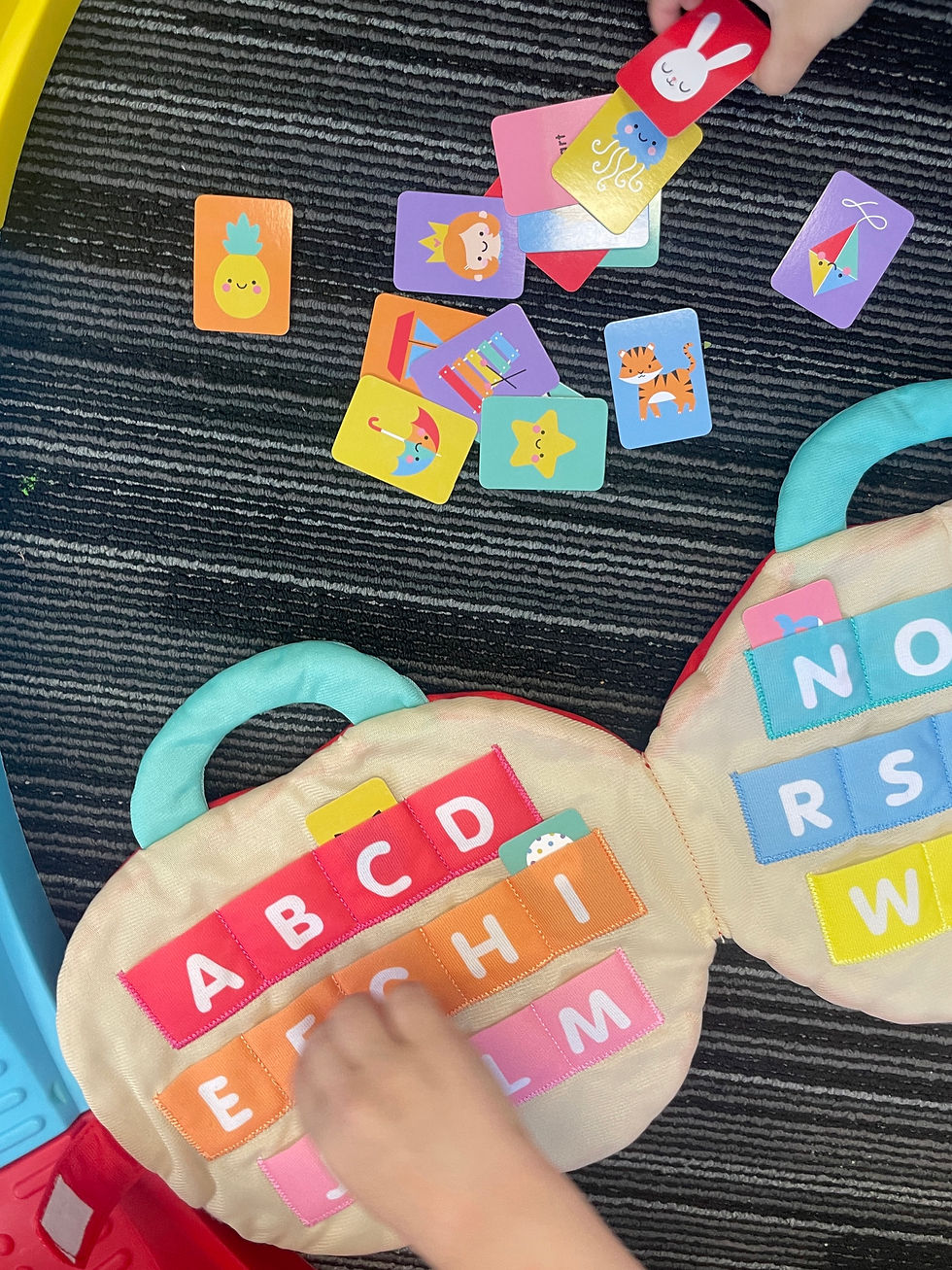How to Refer to an Occupational Therapist or Speech Pathologist – A Quick Guide for Families, Teachers & Health Professionals
- claire2876
- Jul 20, 2025
- 3 min read
Updated: Jul 22, 2025

Whether you’re a parent, teacher, GP, NDIS support coordinator, aged care provider, or allied health team member, recognising when to refer someone to an occupational therapist (OT) or speech pathologist (SP) is essential to ensuring they receive timely, effective support.
These therapists play a vital role across the lifespan—from toddlers learning to speak, to teens navigating school, to adults recovering from injury, and older adults aiming to remain independent. But how do you know when to refer, and what does the process involve?
This blog answers your most common referral questions and outlines when, why, and how to link someone with OT or SP services.
🚩 Red Flags: When to Refer
Preschool (0–5 years):
Limited speech or poor understanding of language
Difficulty with fine motor tasks like drawing or self-feeding
Sensory sensitivities or delayed play skills
Primary School (5–12 years):
Handwriting problems, difficulty sitting still, or sensory issues
Trouble expressing ideas, reading, or understanding instructions
Social difficulties or unclear speech
Teens (12–18 years):
Poor organisation, emotional regulation, or life skills
Persistent stuttering, unclear communication, or social anxiety
Struggles with essays, comprehension, or peer relationships
Adults (18–65 years):
Changes in ability after stroke, injury, or illness
Swallowing difficulties, fatigue, or mental health impacts
Need for assistive technology or workplace adaptations
Older Adults (65+ years):
Memory changes, falls, or reduced mobility
Difficulty swallowing, slurred speech, or hoarse voice
Support with home safety, independence, and communication
🧾 How to Make a Referral
Depending on funding and individual circumstances, the referral process may vary:
✅ NDIS:
If the person has NDIS funding under Improved Daily Living, they or their support coordinator can contact the clinic directly. No GP referral is required for NDIS-funded therapy.
✅ Medicare (EPC/Chronic Disease Management Plan):
GPs can provide a CDM referral (formerly EPC) for clients with chronic or complex conditions. This provides up to five subsidised allied health sessions per calendar year.
✅ Private/Out-of-Pocket:
Clients can book directly. No referral is needed. Private health rebates may apply depending on their insurance policy.
✅ Aged Care:
Referrals can be made via My Aged Care, by case managers, family members, or directly through the clinic if the person is self-managing. Therapy can be funded through Home Care Packages or private billing.
✅ Schools and Early Childhood Centres:
Educators can refer families directly or recommend they speak to their GP or paediatrician.
🤔 What Happens After Referral?
Once a referral is received, the clinic will:
Contact the client/family to arrange an intake session.
Match them with the appropriate OT or SP based on need and location.
Schedule an initial assessment.
Provide a written plan outlining goals, frequency, and next steps.
We work collaboratively with families, educators, GPs, support coordinators, and case managers to ensure clear communication and progress tracking.
🤝 When in Doubt—Refer Early
Waiting to see if a problem will “sort itself out” often results in frustration or delays in accessing support. Early referral—especially for children and those recovering from injury—ensures the best possible outcomes.
If you’ve noticed difficulties, trust your gut and reach out. Our team is always happy to answer questions, complete screens, and help determine the best path forward.

📅 How to Book
We’ve made booking easy—appointments can be scheduled online 24/7.
Have questions about funding or referral pathways? Contact our friendly team—we’re here to help.









